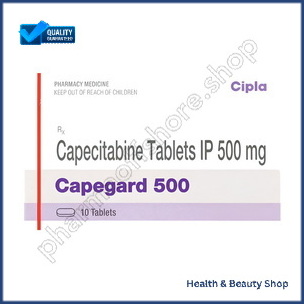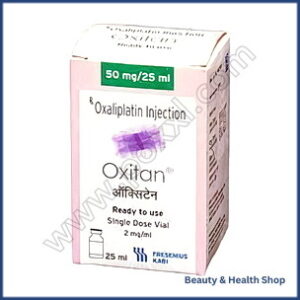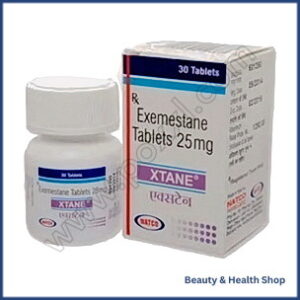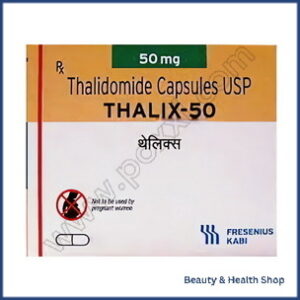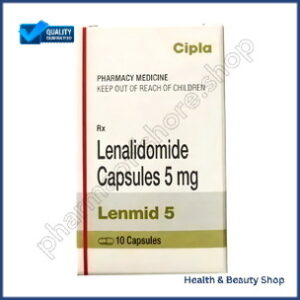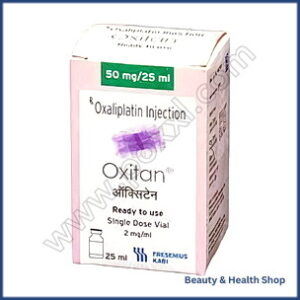So, you’ve heard about Capegard, a medication utilized in the treatment of various cancers. But did you know that beyond its primary use, there might be other hidden benefits to this drug? Its mechanism of action is intriguing, offering a unique approach to combating cancer cells. Before you dismiss it as just another medication, it might be worth exploring its potential in other medical conditions.
Why is this medication prescribed?
When prescribed Capegard (Capecitabine), it’s typically to treat certain types of cancer. Capecitabine is a type of chemotherapy drug that’s commonly used to treat breast, colon, and rectal cancers. It works by interfering with the growth of cancer cells in the body, ultimately helping to slow down or stop the spread of cancer. Specifically, Capegard is often prescribed when other treatments haven’t been effective or in cases where cancer has spread to other parts of the body.
For breast cancer, Capegard is frequently used in patients who’ve undergone surgery to remove the tumor. In colon and rectal cancers, it can be part of a treatment plan before or after surgery, along with other medications. Your healthcare provider will determine the appropriate dosage and duration of treatment based on your specific type of cancer, overall health, and how your body responds to the medication. It’s important to follow your doctor’s instructions carefully and report any side effects promptly.
How should this medicine be used?
To use Capegard (Capecitabine) properly, follow the dosage instructions provided by your healthcare provider. This medication is typically taken by mouth with food, usually twice a day in the morning and evening. Swallow the tablets whole with water; don’t crush, chew, or split them.
The dosage is based on your medical condition, response to treatment, and other medications you may be taking. It’s important to take Capegard at the same times each day to maintain a consistent level in your body.
If you miss a dose, take it as soon as you remember, unless it’s close to the next dose. Don’t double the dose to catch up. Keep track of your doses to avoid missed ones.
Your healthcare provider may adjust your dosage or schedule based on your response and any side effects you may experience. Contact your doctor if you have any questions or concerns about using Capegard.
Other uses for this medicine
Other potential applications for Capegard, aside from its primary use, include treating certain types of cancers or conditions as determined by your healthcare provider. Capegard, also known as Capecitabine, is primarily used in the treatment of breast, colon, and rectal cancers. However, it may also be prescribed for other types of cancers such as stomach, esophageal, and pancreatic cancer. Additionally, Capegard has shown effectiveness in treating certain types of skin, bladder, and ovarian cancers. Your healthcare provider will determine the appropriate use of Capegard based on your specific diagnosis and medical history.
Furthermore, Capegard has been studied for its potential in treating metastatic breast cancer, advanced gastric cancer, and metastatic colorectal cancer. It’s essential to follow your healthcare provider’s instructions carefully and report any side effects or concerns promptly. Always inform your healthcare provider about any other medications you’re taking to avoid potential interactions. If you have questions about the potential uses of Capegard, don’t hesitate to discuss them with your healthcare provider for personalized guidance.
What special precautions should I follow?
When taking Capegard (Capecitabine), it’s important to check for possible drug interactions. Make sure to inform your healthcare provider about all medications, supplements, and herbal products you’re currently taking.
This precaution helps guarantee the safe and effective use of Capegard in your treatment plan.
Check for Drug Interactions
Make sure to consult with your healthcare provider about potential drug interactions before taking Capegard (Capecitabine). Here are some precautions to keep in mind:
-
Inform your doctor about all medications: Include prescription, over-the-counter, vitamins, and herbal supplements in the discussion.
-
Understand potential interactions: Some drugs may enhance or reduce the effectiveness of Capegard.
-
Avoid alcohol and grapefruit: These substances can interact negatively with Capegard.
-
Monitor side effects: Be vigilant for any unusual symptoms when combining Capegard with other medications.
What special dietary instructions should I follow?
To optimize the effectiveness of Capegard (Capecitabine), it’s essential to adhere to specific dietary guidelines. Maintaining a well-balanced diet is vital while taking Capegard, as certain foods can interact with the medication and affect its absorption or effectiveness.
It’s recommended to avoid consuming large amounts of grapefruit or grapefruit juice, as they can increase the levels of Capegard in your body, potentially leading to more side effects. Additionally, alcohol consumption should be limited or avoided, as it may worsen certain side effects of the medication.
Ensure that you stay hydrated by drinking plenty of water throughout the day. Incorporating a variety of fruits, vegetables, whole grains, and lean proteins into your meals can help support your overall health and well-being during treatment.
If you have any specific dietary concerns or restrictions, consult with your healthcare provider or a registered dietitian for personalized guidance on how to best manage your diet while taking Capegard.
What should I do if I forget a dose?
In case you miss a dose of Capegard (Capecitabine), promptly take it when you remember, unless it’s close to the time for your next scheduled dose. If it’s near the time for your next dose, it’s advisable to skip the missed dose and continue with your regular dosing schedule.
Don’t take a double dose to make up for the missed one. Taking extra medication can increase the risk of experiencing unwanted side effects. It’s vital to maintain a consistent dosing schedule to guarantee the medication’s effectiveness in managing your condition.
If you’re unsure about what to do if you miss a dose or have any concerns, it’s recommended to consult your healthcare provider or pharmacist for guidance. They can provide you with personalized advice based on your specific situation and help you navigate any uncertainties regarding your medication regimen.
What side effects can this medication cause?
When taking Capegard, it’s crucial to monitor any persistent unusual symptoms closely. Some side effects can be serious, so if you experience symptoms like severe abdominal pain, persistent vomiting, or signs of infection, contact your doctor immediately.
Being aware of these potential side effects and seeking prompt medical attention can help guarantee your well-being while undergoing treatment with Capecitabine.
Monitor Persistent Unusual Symptoms Closely
Keeping a vigilant watch for persistent unusual symptoms is crucial when taking Capegard (Capecitabine) due to its potential side effects. Here are some symptoms to monitor closely:
- Diarrhea that’s severe or doesn’t improve.
- Nausea, vomiting, or loss of appetite.
- Unusual tiredness or weakness.
- Hand-foot syndrome, characterized by redness, swelling, and pain on the palms of your hands or soles of your feet.
If you experience any of these symptoms persistently, it’s essential to inform your healthcare provider promptly. Monitoring these signs can help in early detection and management of side effects associated with Capegard.
Some side effects can be serious. If you experience any of the following symptoms, call your doctor immediately:
Be vigilant for any of the following serious side effects while taking Capegard (Capecitabine), and promptly contact your doctor if you experience them:
-
Severe chest pain or discomfort.
-
Sudden shortness of breath or difficulty breathing.
-
Unusual bleeding or bruising, which may manifest as blood in your stools or urine.
-
Persistent and severe abdominal pain or yellowing of the eyes or skin.
If you encounter any of these symptoms, it’s essential to seek medical attention immediately. These side effects could indicate potentially serious complications that require prompt evaluation and management by your healthcare provider.
What should I know about the storage and disposal of this medication?
Proper storage and disposal of Capegard (Capecitabine) are vital for maintaining its effectiveness and ensuring safety. It’s essential to store Capegard at room temperature, away from moisture and heat. Keep the medication in its original packaging, tightly closed, and out of reach of children and pets. Avoid storing it in the bathroom or kitchen where moisture levels can fluctuate.
When it comes to disposing of Capegard, don’t throw it in the trash or flush it down the toilet unless instructed to do so. Instead, consult your healthcare provider or pharmacist on the proper disposal methods. They may recommend using a take-back program or a designated medication disposal location in your community. It’s important to follow these disposal guidelines to prevent accidental ingestion by others and to protect the environment.
In case of an emergency/overdose
If an emergency or overdose situation occurs with Capegard (Capecitabine), immediate medical assistance should be sought to ensure prompt and appropriate care. Overdosing on Capegard can lead to severe adverse effects and requires urgent attention. Symptoms of an overdose may include increased side effects like nausea, vomiting, diarrhea, numbness, tingling, and pain in the hands or feet, among others. It’s important not to ignore these signs and to seek help immediately.
When facing an emergency related to Capegard, contact emergency medical services or go to the nearest hospital. Be prepared to provide information about the medication, dosage taken, and any symptoms experienced. Medical professionals will assess the situation and provide the necessary treatment to manage the overdose effectively.
What other information should I know?
Understanding the potential interactions with other medications is essential when taking Capegard (Capecitabine). It’s important to inform your healthcare provider about all the medicines you’re currently taking, including prescription, over-the-counter, vitamins, and herbal supplements. Some medications may interact with Capegard, affecting how it works or increasing the risk of side effects.
Additionally, it’s important to be aware of certain medical conditions that could impact the use of Capegard. Inform your doctor if you have a history of liver or kidney disease, coronary artery disease, or if you’re pregnant or breastfeeding. These conditions may require special monitoring or adjustments to your treatment plan.
Remember to follow your healthcare provider’s instructions carefully while taking Capegard. Stick to the prescribed dosage and schedule, and don’t alter your treatment without consulting your doctor first. If you have any concerns or experience unusual symptoms while on Capegard, contact your healthcare provider promptly for guidance. By staying informed and proactive, you can ensure the safe and effective use of Capegard in your treatment regimen.
Brand names
One common brand name for Capegard (Capecitabine) is Xeloda. Xeloda is a widely known brand under which Capecitabine is marketed. Here is a table listing some of the brand names that Capegard (Capecitabine) is sold under in various countries:
| Brand Name | Country | Manufacturer |
|---|---|---|
| Xeloda | United States | Roche |
| Capeciteabine | India | Cipla |
| Cap?citabine | France | Mylan |
| Capecitabin | Germany | Sandoz |
These are just a few examples of the brand names Capegard (Capecitabine) may be sold under in different regions. It is crucial to consult with a healthcare provider or pharmacist to make sure you are receiving the correct medication under the brand name prescribed to you.
Purchase Options for Capegard
When looking to purchase Capegard, you can explore different options available through licensed pharmacies and healthcare providers. Capegard, a medication containing capecitabine, is commonly prescribed for certain types of cancer treatment.
It’s important to obtain Capegard from reputable sources to guarantee its quality and efficacy. Licensed pharmacies are a reliable source for purchasing Capegard, where you can present your prescription and receive the medication under the supervision of trained pharmacists.
Additionally, healthcare providers such as hospitals or specialized cancer treatment centers may also offer Capegard for patients undergoing treatment. These facilities can provide guidance on the proper usage of Capegard and monitor your progress throughout the treatment process.
When considering purchasing Capegard, it’s essential to follow your healthcare provider’s instructions carefully and adhere to the prescribed dosage. By obtaining Capegard from reputable sources and following medical advice, you can effectively manage your treatment and maximize its benefits in combating cancer.
To summarise
To wrap up, summarizing the key points about Capegard’s purchase options is important for effectively managing your cancer treatment. When considering Capegard, it’s necessary to explore the different purchasing avenues available to guarantee you can access this medication when needed. Understanding the cost implications, insurance coverage, and potential financial assistance programs will help you make informed decisions about acquiring Capegard.
Additionally, evaluating the convenience of purchasing options, such as local pharmacies, specialty pharmacies, or online suppliers, can impact the accessibility and timely receipt of your medication. By comparing these options, you can choose the most convenient and reliable source for obtaining Capegard.
Furthermore, discussing the purchase options with your healthcare provider or pharmacist can provide valuable insights and guidance tailored to your specific needs. They can offer recommendations based on your treatment plan, financial situation, and preferences, helping you navigate the process of obtaining Capegard smoothly. Remember that staying informed and proactive about your medication procurement is crucial for ensuring continuity in your cancer treatment.


